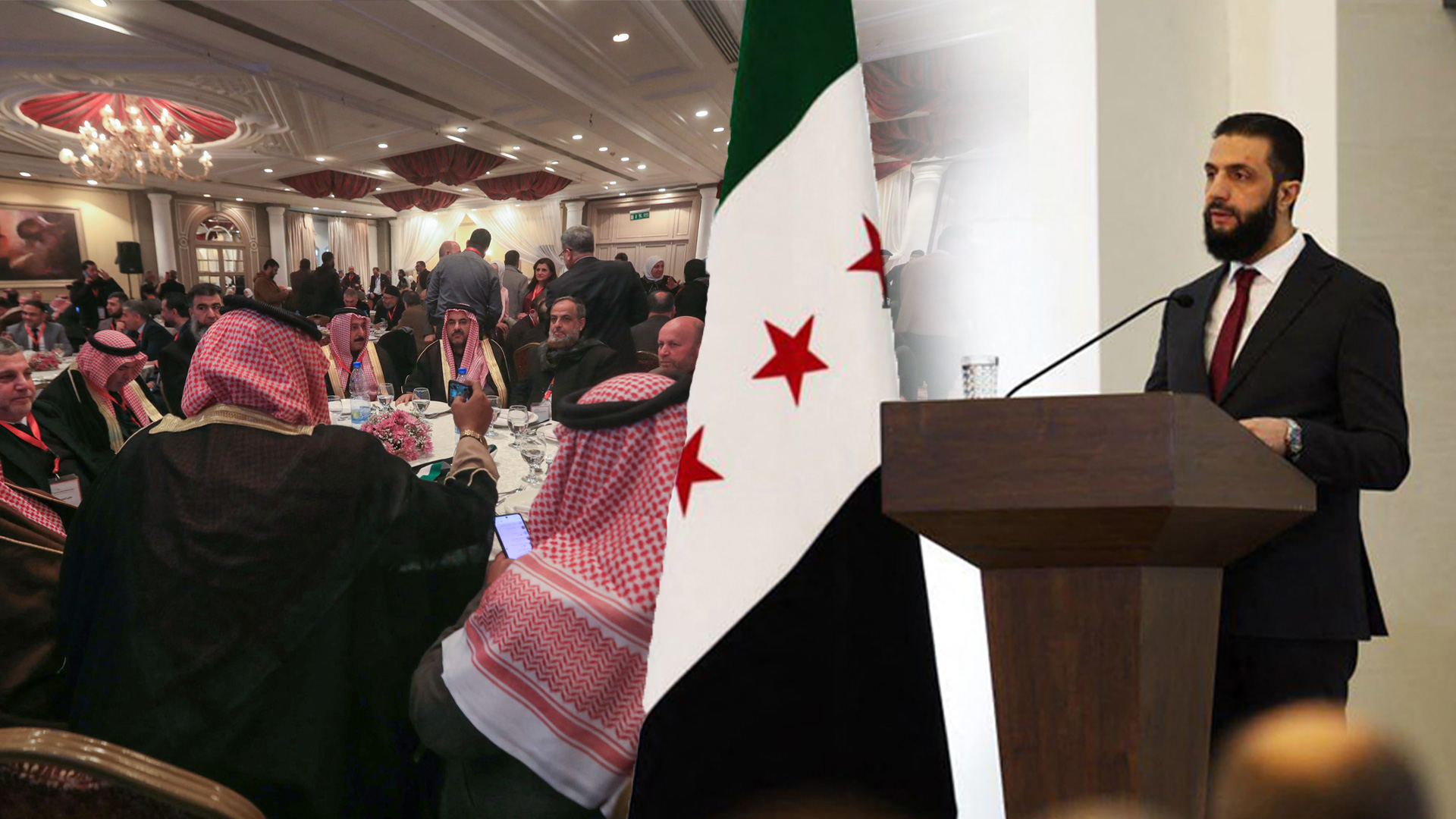Al-Sharaa Declaring a "Historic Phase," Amid Kurdish Absence
Despite calls for inclusivity, the conference was held without Kurdish political representation, a move that has sparked outrage among Kurds in Syria.

ERBIL (Kurdistan24) - The Syrian National Dialogue Conference concluded in Damascus today, Tuesday, with Transitional President Ahmed al-Sharaa emphasizing the importance of unity and state control over arms.
Speaking at the People’s Palace, Al-Sharaa described the post-Assad era as the start of a "historic phase," asserting that Syria’s strength depends on its territorial integrity.
Al-Sharaa: Syria’s Unity and Sovereignty Are Non-Negotiable
In his speech, Al-Sharaa underscored that consolidating all weapons under state control is not a luxury but an obligation, warning against any attempts to fragment the country.
"Syria is indivisible; it is a whole entity, and its strength is in its unity," he declared. He also confirmed plans to establish a transitional justice commission to address past violations and ensure accountability after decades of authoritarian rule.
A Call for Unity and Cooperation
Al-Sharaa urged the conference participants, including civil society representatives, religious figures, opposition leaders, and artists, and with the absence of any Kurdish political forces to set aside their differences and engage in constructive dialogue.
"Syria has invited you all today not to disagree but to unite, to deliberate on the future of your nation and the generations to come," he stated.
Government Transition on the Horizon
The conference, held just days before the expected formation of a transitional government in early March, marks a critical juncture in Syria’s post-Assad reconstruction.
Foreign Minister Asaad Al-Shaibani previously pledged that the new government would be as representative of the Syrian people as possible, considering the country's diverse social fabric.
Kurds Excluded from the Political Process
Despite calls for inclusivity, the conference was held without Kurdish political representation, a move that has sparked outrage among Kurds in Syria.
The Kurdish National Council in Syria (KNCS) condemned the exclusion, warning that sidelining Kurdish voices threatens the prospects of a democratic and stable Syria. "Limiting political dialogue to one faction is a negative indicator for the country's future," KNCS spokesperson Faisal Yusuf stated in an interview with Kurdistan24.
AANES Rejects the Conference’s Legitimacy
Similarly, the Autonomous Administration of North and East Syria (AANES) dismissed the legitimacy of the conference, arguing that it neither reflects the aspirations of the Syrian people nor includes all political and social components of the country.
In a statement, AANES reaffirmed its commitment to a democratic Syria built on genuine dialogue, stressing that any national reconciliation effort must be inclusive.
International and Regional Support for the Transition
Since Assad’s removal, Damascus has become a focal point for international diplomacy, with Arab and Western delegations showing support for the new leadership and encouraging a broad-based political transition.
However, the absence of key political actors, including the Kurds, raises questions about whether the dialogue can truly lead to a unified and inclusive Syria.
With the formation of the transitional government imminent, the coming weeks will be crucial in determining whether Syria’s new leadership can foster genuine national reconciliation or if political exclusion will deepen divisions in the war-torn country.
